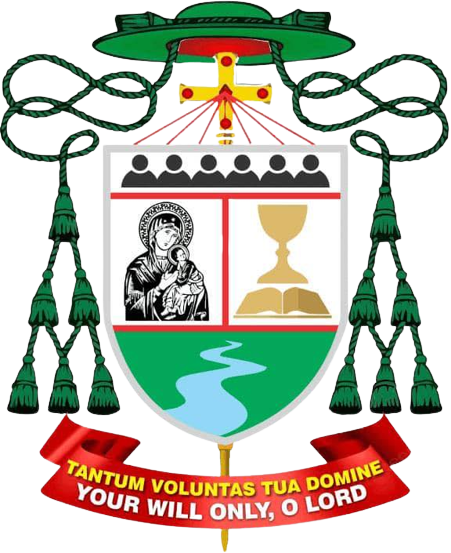The Catholic Church is known for its rich traditions and rituals, and at the heart of these are the sacraments. These sacred rites are seen as outward signs instituted by Christ to give grace. They play a pivotal role in the life of every Catholic, guiding them from birth to death in their spiritual journey.
The Catholic Diocese of Warri, like all Catholic dioceses around the world, administers these sacraments as a testament to the faith and commitment of its members.
What are the Sacraments?
The sacraments are seven rites that are considered essential for salvation, according to the teachings of the Catholic Church. They are:
- Baptism: The first sacrament, it cleanses the soul of original sin and welcomes the individual into the Church.
- Confirmation: This sacrament strengthens the baptized and confirms them in the Catholic faith.
- Eucharist: Also known as Holy Communion, it’s the central act of worship where Catholics receive the Body and Blood of Christ.
- Reconciliation: Often called Confession, it’s the sacrament of penance where sins are confessed and forgiven.
- Anointing of the Sick: Formerly known as Last Rites or Extreme Unction, it offers spiritual healing and strength to those who are seriously ill or near death.
- Matrimony: The sacred union of a man and woman in marriage.
- Holy Orders: The sacrament where men are ordained as deacons, priests, or bishops.
Significance of the Sacraments
The sacraments are not just rituals; they are channels of divine grace. Each sacrament imparts specific graces that help Catholics in their spiritual and earthly lives. For instance, Baptism removes the stain of original sin, while the Eucharist nourishes the soul. They mark significant milestones in a Catholic’s life, from birth (Baptism) to death (Anointing of the Sick).
Who Administers the Sacraments?
The sacraments are typically administered by ordained ministers:
- Baptism: Can be administered by priests, deacons, or in emergencies, any layperson.
- Confirmation: Usually by a bishop, but priests can also confer this sacrament in certain situations.
- Eucharist: Administered by priests.
- Reconciliation: Only priests can administer this sacrament.
- Anointing of the Sick: Administered by priests.
- Matrimony: The couple administers this sacrament to each other, with a priest or deacon as a witness.
- Holy Orders: Only bishops can ordain.
How Can Someone Take the Sacraments?
To receive a sacrament, one usually undergoes a period of preparation. For instance:
- Baptism: Parents and godparents attend preparatory classes.
- Confirmation: Candidates undergo catechesis and spiritual preparation.
- Eucharist: Before first Holy Communion, children receive catechetical instruction.
- Reconciliation: A brief examination of conscience precedes confession.
- Anointing of the Sick: Administered upon request when someone is seriously ill.
- Matrimony: Couples attend pre-marital counseling.
- Holy Orders: Candidates undergo years of seminary training and discernment.
The Catholic Diocese of Warri and the Sacraments
The Catholic Diocese of Warri, located in Nigeria, is no different from other dioceses in its reverence for the sacraments. The diocese ensures that its members receive proper catechesis and preparation for each sacrament. Churches under the diocese organize regular sacramental schedules, retreats, and seminars to deepen the understanding and appreciation of these sacred rites. The diocese, through its clergy and lay ministers, ensures that the sacraments are available to all its members, guiding them in their spiritual journey.
Additional Notes
- For adults converting to Catholicism, the Church offers the Rite of Christian Initiation of Adults (RCIA). This process includes instruction and formation leading to the reception of the Sacraments of Initiation (Baptism, Confirmation, and Eucharist) usually at the Easter Vigil.
- It’s essential to approach each sacrament with the right disposition, understanding its significance, and being open to the grace it imparts.
- Regular participation in the Church community, prayer, and spiritual guidance can help individuals discern when they are ready to receive a particular sacrament.
